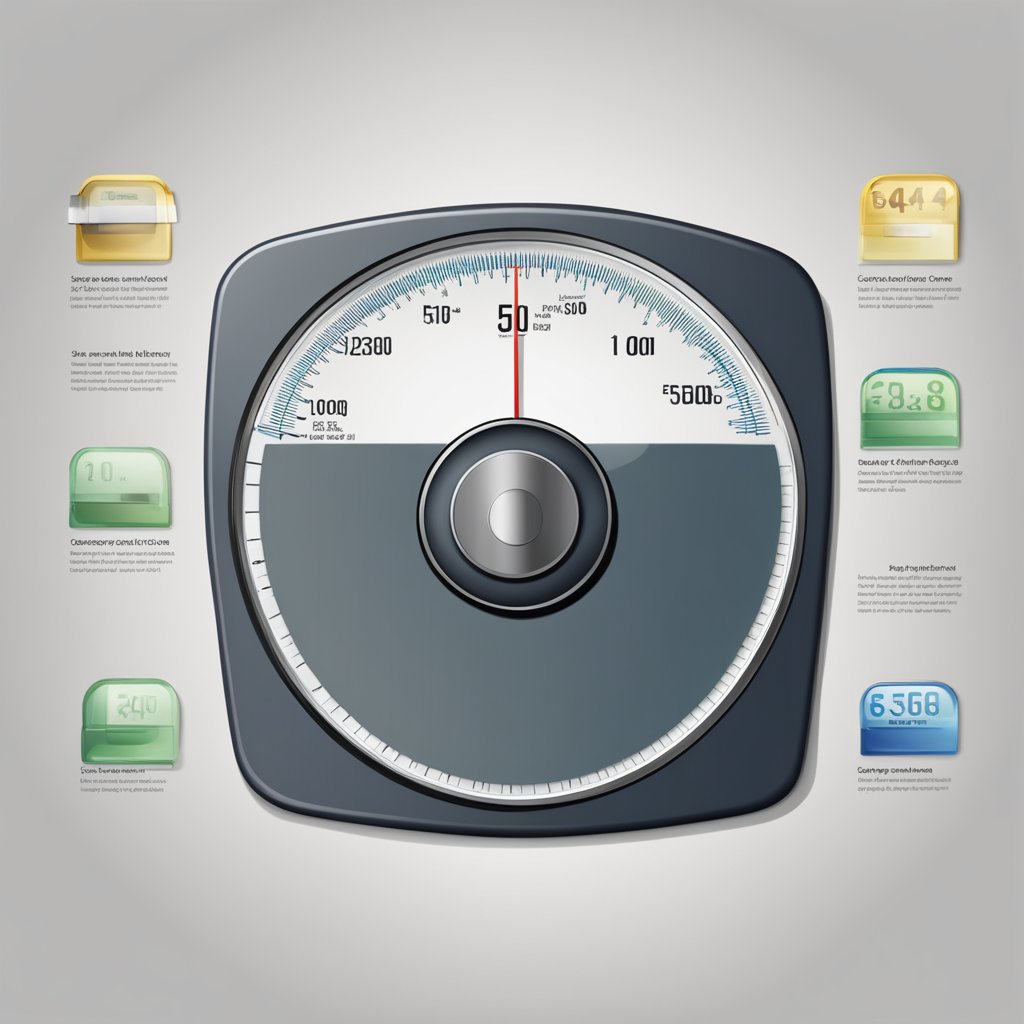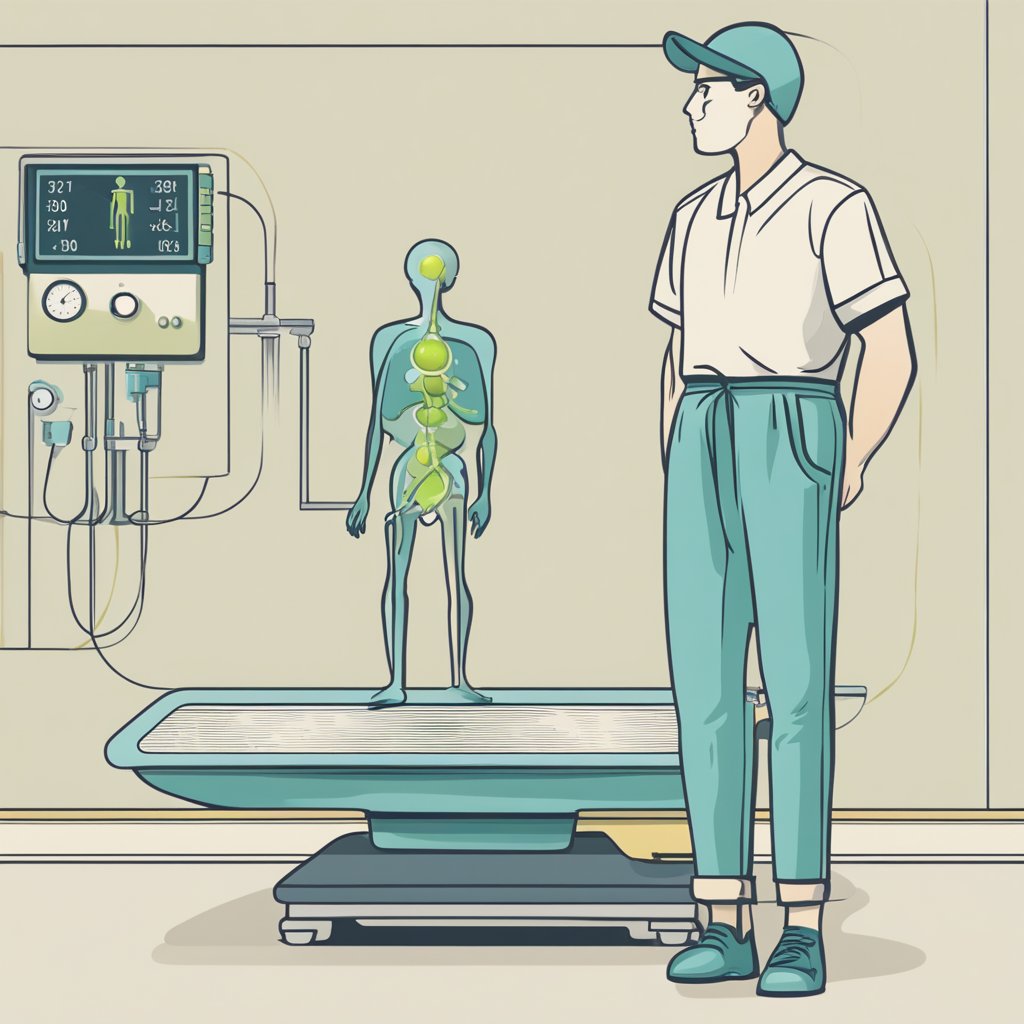Losing a significant amount of weight unexpectedly after gallbladder surgery was a surprising turn of events for me. My journey began with the necessity to undergo gallbladder removal surgery, a procedure medically known as a cholecystectomy. Post-surgery, I observed not only the resolution of my initial gallbladder-related symptoms but also a noticeable reduction in my body weight.

The weight loss I experienced post-surgery was not entirely without effort. Adapting to a new way of eating was crucial, as my body could no longer digest fats the same way without the gallbladder. This led to an inadvertent shift towards a healthier diet and lifestyle. The combination of surgical recovery and dietary changes contributed to a 50-pound weight drop over several months.
Key Takeaways
- Experienced significant weight loss following gallbladder removal.
- Dietary adjustments post-surgery played a key role in weight reduction.
- A healthier lifestyle was adopted as a consequence of the surgery.
Understanding Gallbladder Surgery

In this section, I’ll detail the function of the gallbladder, explain what cholecystectomy is, and discuss the types of gallbladder surgery available.
The Role of the Gallbladder
My gallbladder was a small, pear-shaped organ located under my liver. It played a crucial role in my digestive system by storing bile—a digestive fluid produced by my liver. Bile is essential for breaking down fats in the food I consume. When foods rich in fat enter my digestive tract, my gallbladder releases bile into the small intestine to aid digestion.
What Is Cholecystectomy?
A cholecystectomy is a surgical procedure I underwent to remove my gallbladder. This procedure became necessary when I suffered from gallstones and inflammation—known as cholecystitis—which led to persistent abdominal pain and jaundice. My surgeons recommended this surgery because non-surgical treatments were ineffective at relieving my symptoms.
Types of Gallbladder Surgery
Gallbladder surgery can be performed using different methods, each with its specifics regarding incisions and recovery:
-
Laparoscopic Gallbladder Surgery: This is a minimally invasive surgery that involved small incisions in my abdomen. Surgeons inserted a laparoscope—a thin tube with a camera—and other specialized instruments to remove my gallbladder. The benefits included less postoperative pain and a quicker recovery. This is the most common type of gallbladder surgery.
-
Open Surgery: In certain cases, such as when I experienced severe inflammation or gallbladder polyps, an open surgery might be required. An open cholecystectomy involves a larger incision in the abdomen to provide surgeons direct access to the gallbladder. This type of surgery usually requires a longer hospital stay and recovery period.
After my procedure, I worked closely with my dietitian to adjust my diet and manage post-cholecystectomy syndrome, a condition that can arise post-surgery, which includes symptoms affecting my digestion. Also, my surgical team monitored me for potential postoperative complications, such as blood clots or infections at the incision site.
Lifestyle and Dietary Adjustments Post-Surgery
Recovering from gallbladder surgery necessitates specific changes to my diet and exercise routines to promote healing and maintain weight loss.
Proper Nutrition and Diet
After surgery, I understand that my body can no longer digest fatty foods as efficiently, which calls for a careful selection of foods to avoid discomfort and complications. My diet is structured around the following guidelines:
- Low-fat choices: I consume foods with minimal fat to prevent indigestion and nausea. Lean proteins such as chicken, fish, and legumes form the cornerstone of my meals. High-fat foods like fried items, butter, and oils are strictly limited.
- High-fiber foods: A gradual increase in fiber intake is key to managing my digestion and preventing constipation. I incorporate a variety of fiber-rich vegetables, fruits, and whole grains.
- Small, frequent meals: Large meals can strain my digestion, so I eat smaller portions more frequently to avoid bloating and gas.
Table: Sample Menu
| Time | Food | Notes |
|---|---|---|
| Breakfast | Oatmeal with berries | Low-fat, high-fiber |
| Lunch | Grilled chicken salad | Lean protein, vegetables |
| Dinner | Steamed fish, quinoa | Lean protein, whole grain |
| Snacks | Apple slices, almonds | Healthy, portion-controlled |
I avoid added sugars, salt, and saturated fats, focusing on balance and nutritional content.
Recommended Physical Activities
Daily exercise is crucial for sustaining weight loss and enhancing overall health:
- Low-impact activities: I engage in activities such as walking or swimming, which do not overly strain my body or incisions.
- Gradual intensity increase: I progressively intensify my workouts, ensuring not to overdo it and risk injury or strain.
Checklist for Physical Activity Post-Surgery
- Start with light activities like walking for short durations.
- Increase the duration and intensity slowly over weeks.
- Incorporate strength training to build muscle, which can improve metabolism.
Avoiding Common Dietary Triggers
I steer clear of foods and substances that can aggravate my digestive system:
- Alcoholic beverages: I limit alcohol intake to minimize the risk of pancreatitis and to promote a healthier liver function.
- Caffeine: I reduce caffeine consumption to avoid stomach irritation and sleep disturbances.
- Spicy and greasy foods: I avoid these as they can lead to gastrointestinal upset and discomfort.
By adhering to these dietary and lifestyle changes, my recovery progresses smoothly, and I am able to maintain the weight loss achieved from the surgery.
Weight Loss After Gallbladder Removal
In my journey of losing weight after gallbladder removal, I learned the importance of understanding the changes that come with surgery and maintaining a healthy lifestyle for continued weight management.
Understanding Rapid Weight Loss
After my gallbladder was removed, I noticed a significant shift in my body’s ability to process fats, which play a pivotal role in the digestive system. The absence of the gallbladder can lead to faster digestion of fats that can sometimes result in diarrhea, a common side effect. During recovery, which can include a hospital stay, I was careful to follow my healthcare provider’s advice to avoid discomfort.
- Recovery Time: Post-surgery recovery time is vital for the body to adapt to the changes in the digestive process.
- Diet Adjustments: A switch to a balanced diet with a reduction in spicy foods and refined carbohydrates helped prevent rapid weight loss and promote overall health.
- Fat Digestion: With the gallbladder gone, I noticed that large amounts of fat could cause digestive issues, so monitoring my fat intake became crucial.
Maintaining a Healthy Weight
Maintaining a healthy weight after surgery required a conscious effort on my part, combining physical activity and nutritional guidance from a dietitian.
- Exercise: Consistent but careful exercise, without heavy lifting, was key to my sustained weight loss. I made sure to gradually reintroduce physical activity into my routine.
- Balanced Diet: I kept a food journal to track my meals and ensure I was obtaining nutrients from all food groups, especially those I needed for a smooth recovery.
- Healthcare Guidance: Working with a dietitian, I tailored my diet to minimize risks associated with obesity, while ensuring that my overall health remained a priority.
- Lifestyle Changes: I made permanent lifestyle changes, such as eating smaller meals more frequently, which suited my altered digestive system better and helped ease any discomfort.
My experience underscored that losing weight after gallbladder surgery is about more than just recovery; it’s about adopting a lifestyle that supports a healthy, functioning body without the gallbladder.
Frequently Asked Questions
After my gallbladder surgery, I’ve noticed changes in my weight, leading me to discover key insights related to post-operative weight management.
What are common reasons for weight loss following gallbladder removal?
I learned that weight loss could occur after gallbladder surgery due to altered digestion and a reduced ability to process fats, prompting a more cautious approach to eating.
How can I manage my weight effectively after gallbladder surgery?
I found that keeping a balanced diet, monitoring portion sizes, and integrating regular physical activity were crucial for managing my weight after the operation.
Are there particular dietary recommendations for a low-fat diet post-gallbladder removal?
Doctors usually advise eating more fruits, vegetables, whole grains, and lean proteins while limiting high-fat foods to help with digestion and weight maintenance after surgery.
What supplements may support weight management after gallbladder surgery?
I’ve been guided to consider supplements like bile salts, digestive enzymes, and a multivitamin tailored to my specific needs, under physician supervision.
Why do some individuals experience significant weight gain following gallbladder removal?
Some people might eat more fats and calories post-surgery due to a lack of gallbladder-related discomfort, which can lead to weight gain; hence, monitoring diet is essential.
Can you share success stories of weight management post-gallbladder surgery?
I’ve come across many success stories where individuals have maintained or lost weight by adhering to their new dietary restrictions and lifestyle adjustments after the surgery.